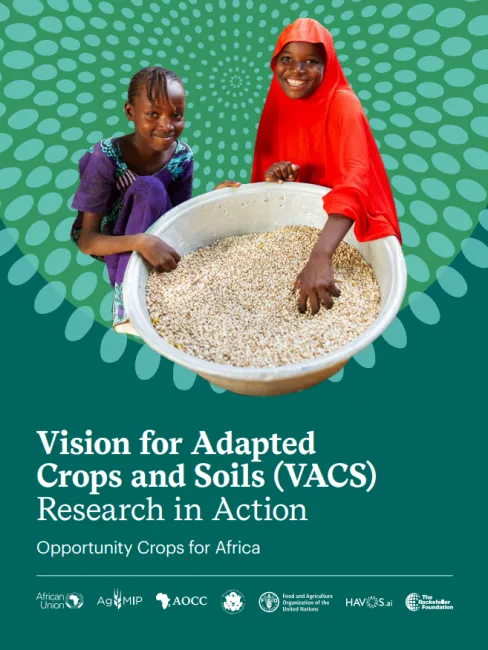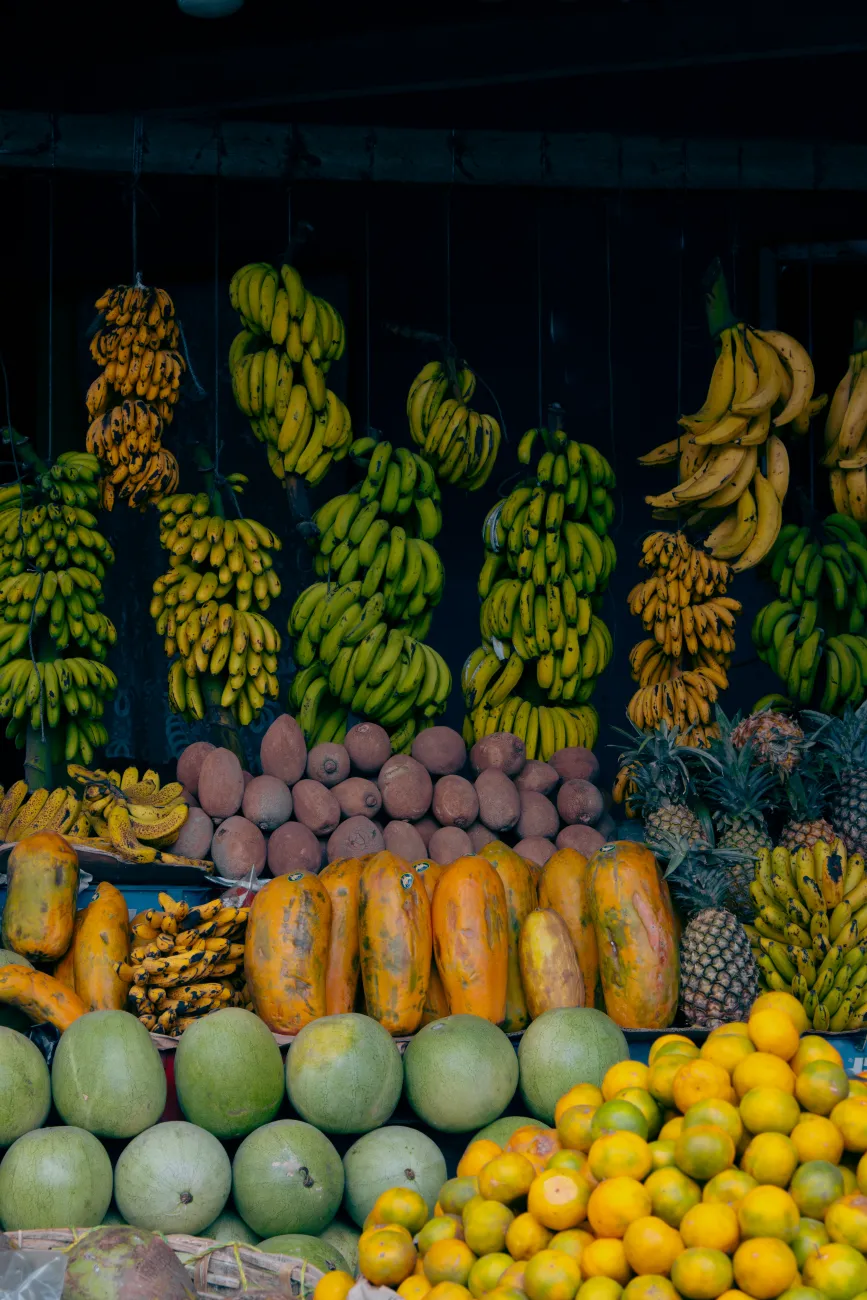This report by the Rockefeller Foundation explores recommendations to boost agricultural production and nutrition in line with the Vision for Adapted Crops and Soils (VACS). The report finds that more than 700 million people globally are undernourished. It calls for investment in underutilised indigenous and traditional food crops as a means to strengthen resilience to climate change and improve nutrition in Africa

Summary
This report by the Rockefeller Foundation explores recommendations to boost agricultural production and nutrition in line with the Vision for Adapted Crops and Soils (VACS). VACS is a partnership between the African Union (AU), Food and Agricultural Organization of the United Nations (FAO), and the Office of the Special Envoy for Food Security in the U.S. State Department.
The report finds that more than 700 million people globally are undernourished. The report cites major concerns of meeting global food demand amidst rising populations, negative impacts of climate change on food production and overreliance on a few staple crops as challenges to overcome. It calls for investment in underutilised indigenous and traditional food crops as a means to strengthen resilience to climate change and improve nutrition in Africa. The recommended crops can be seen in Figure 1. Further details on the crop selection process and report methodology can be found in the Crop Profile Report.
Figure 1: Opportunity crops recommended for investment
The report states that “emphasising the interdependence of soil fertility and health with nutritious, climate-resilient agriculture, so that investments can be self-sustaining and increase returns year after year.” The report is aimed at guiding investment and calls for collaboration with local organisations, local communities, the private sector, and civil society including collaborating with farmers in plant breeding activities, working with consumers to find desirable crop traits, and understanding communities’ socioeconomic and gender barriers and constraints to adoption and consumption of crops.
Based on the existing literature and the report findings, 10 recommendations are provided for moving forward. These are all expanded upon in the report itself:
- Implementing and maintaining effective soil health management practices requires a multifaceted approach
- Invest in robust seed systems for opportunity crops in Africa
- Identify key genetic traits for tolerance to extreme and fluctuating weather and emerging pests and diseases
- Crop diversification is a vital strategy for enhancing climate resilience in agriculture,
- Investing in opportunity crops is a pathway towards more equitable resource distribution
- Scale up market opportunities and value chains
- Invest in and advance post-harvest processing technologies and demand creation to ensure safe, affordable, and in-demand foods
- Advisory and extension services are the bedrock for farmers and small-scale producers to adjust their management
- Consumer preference data and farmers’ knowledge on best practices are essential for crop breeders, plant scientists, and others in the research and development community
- Strengthen policy and regulatory environments
Reference
Fredenberg, E., Karl, K., Passarelli, S., Porciello, J., Rattehalli, V., Auguston, A., Chimwaza, G., Grande, F., Holmes, B., Kozlowski, N., Laborde, D., MacCarthy, D., Masikati, P., McMullin, S., Mendez Leal, E., Valdivia, R., Van Deynze, A., van Zonneveld, M. Vision for Adapted Crops and Soils (VACS) Research in Action: Opportunity Crops for Africa (2024).
Read more here. See also our essay on How power dynamics influence southern African seed and food systems and the TABLE report Investment, Power and Protein in sub-Saharan Africa




Comments (0)